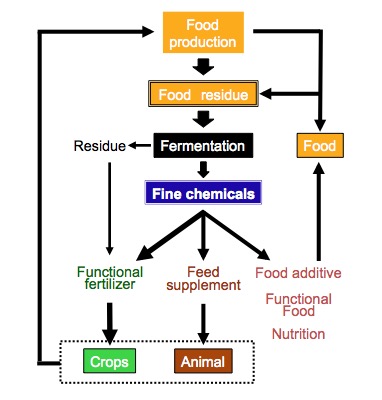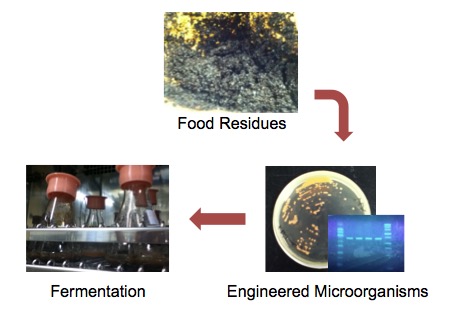Environmental Bioengineering

- account_circleKiyotaka HaraPhD, Assoc. Prof.
- Website:https://sweb.u-shizuoka-ken.ac.jp/~env-bioeng/
- Mail:k-hara@u-shizuoka-ken.ac.jp
- Phone:+81-54-264-5659
Environmental Bioengineering
Applied microbiology for sustainable environment and food production.
- 1. Conversion of food residues to ingredients for microbial fermentation
In many cases, it is difficult to use food residues directly as ingredients for microbial fermentation. We are developing methods to treat these resources for easy utilization by microorganisms.
- 2. Assessment and improvement of microbial cell factories.
We study to measure fundamental metabolic parameters of microorganisms owing to fermentation performance, especially energy and redox metabolism. We are engineering these metabolisms to improve microorganisms to develop tough and efficient cell factories for production.
- 3. Improvement of fine chemical fermentation.
We improve microbial fine chemical fermentation. To date, we improve yeast to enhance productivity of glutathione as a supplement and functional food for health of human, astaxanthin as feed supplement for health of fish, and 5’-amino levulinic acid as functional fertilizer for health of crops.
- Figure 1
- Fine chemical production from food residues

- Figure 2
- An example of fermentation of food residues using engineered microorganisms

References
- Commun Biol. 2, 424 (2019)
- Microb Cell Fact. 18, 194 (2019)
- Biores Technol. 245, 1400 (2017)
- Science. 353, 6305 (2016)
- Appl Microbiol Biotechnol. 99, 9771-9778 (2015)
- Microb Cell Fact. 14, 56 (2015)
- Microb Cell Fact. 13, 175 (2014)
- Sci Rep. 3, 1635 (2013)